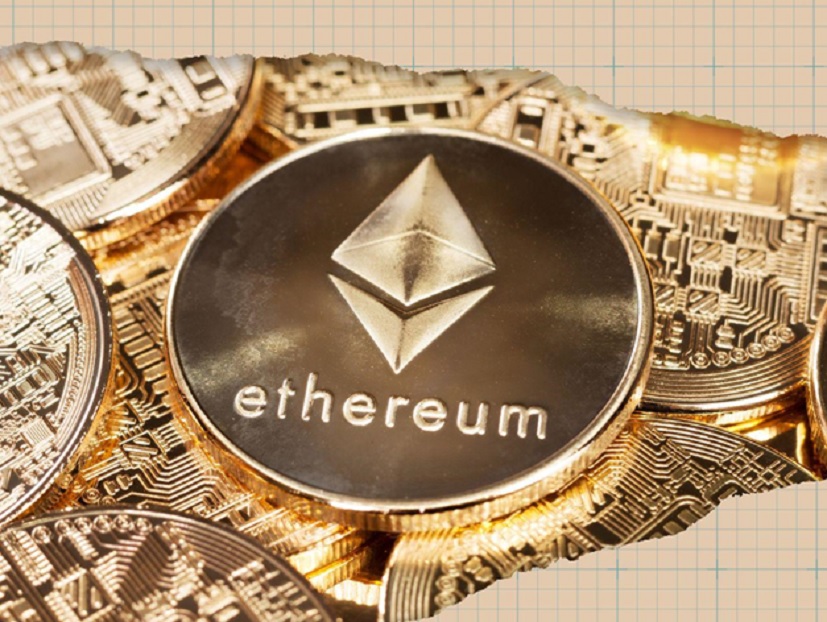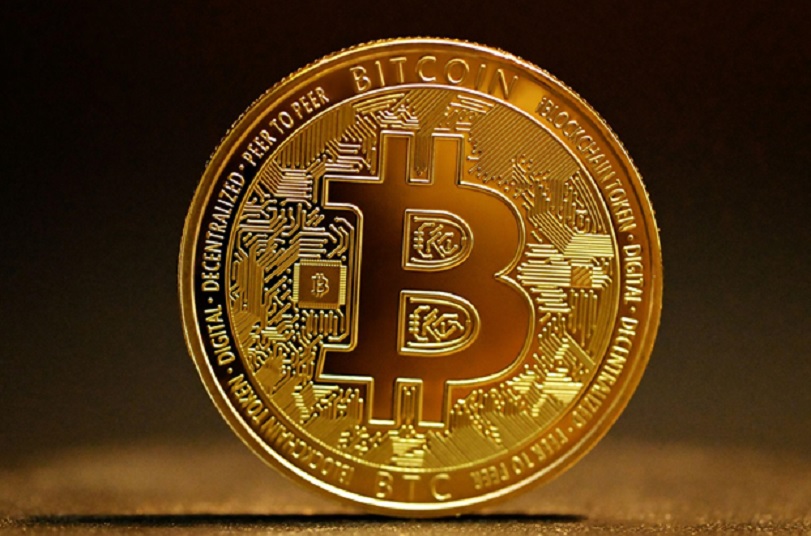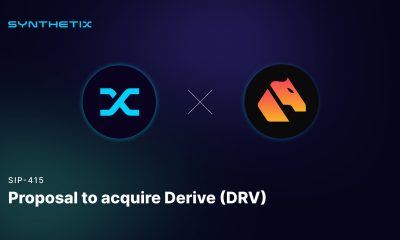Economy
11 Ways To Make Money With Ethereum in Nigeria

You’re probably familiar with Bitcoin, but have you heard of Ethereum? Ethereum is a decentralised platform for building and running applications and is quickly becoming one of the hottest investment opportunities in the crypto space. If you’re looking for ways to make money with Ethereum in Nigeria, you’ve come to the right place. In this blog post, we’ll explore 11 ways to get started and make the most of your investment.
Imagine this: You’re scrolling through your social media feed, and you come across a post from a friend who made a ton of money with Ethereum. They tell you about this fantastic platform they used to invest in decentralised applications and make a fortune. You’re intrigued but also a bit sceptical – you’ve heard of cryptocurrencies, but you have no idea how they work.
That’s exactly how I felt when I first heard about Ethereum. But, being the curious person I am, I decided to do some research and learn all about it. And let me tell you, I was blown away by what I discovered. Ethereum is a game-changer, and I want to share everything I learned with you.
In this article, I’ll break down Ethereum in a way that’s easy to understand so you, too, can take advantage of its potential to make money. Whether you’re a beginner or just looking to expand your investment portfolio, this article is for you. So, sit back, grab a cup of coffee, water, tea or anything you want, and get ready to learn about the fantastic world of Ethereum and the different ways you can make money from it!
Overview of Ethereum
Ethereum is a pretty cool platform. It’s decentralised, which means it’s not controlled by any government or corporation. It’s also open-source, which means anyone can use and build on it. Basically, it’s a platform for creating and running smart contracts and decentralised apps (dApps).
So what are smart contracts? Think of them as computer programs that automatically execute when certain conditions are met. For example, you could use a smart contract to automate the exchange of money, property, or other assets between two parties. No need for a middleman!
Ethereum uses its own cryptocurrency called Ether (ETH) to power its network and execute transactions. And to keep everything secure, it uses a consensus mechanism called Proof of Stake, which is more energy-efficient than other methods.
In terms of dApps, Ethereum is a pretty big deal. It’s home to many decentralised apps, from games and social media to financial applications. And you can even create decentralised organisations (DAOs) that run on code rather than relying on a central authority.
So, that’s Ethereum in a nutshell! It’s a pretty innovative platform helping shape a more decentralised and open internet.
So, how can you make money from this cutting-edge cryptocurrency? Let’s find out.
Ways To Earn Passive Income In Nigeria With Ethereum
1. Trading Ethereum:
One of the most straightforward ways to make money with Ethereum is trading. The basic idea is to buy low and sell high. You’ll need to find a reputable crypto exchange that supports Ethereum., and create an account. From there, you can buy Ethereum using Nigerian Naira (NGN) or another cryptocurrency and hold onto it until you think the price will go up. Then, you can sell it for a profit.
Keep in mind that the cryptocurrency market is highly volatile, and prices can change quickly. It’s important to understand market trends and do your research before making any trades. Consider using stop-loss orders to minimise your risk and protect your investment.
To get the most out of your investment, you must sell your Ethereum on the best crypto trading platform, Breet app. Breet is an OTC crypto trading app in Nigeria where you can convert Ethereum to Naira and withdraw your funds directly to your Naira bank account within seconds for no extra charge. Get started by downloading Breet today, and enjoy a seamless trading experience.

2. Staking Ethereum:
Staking is another way to make money with Ethereum, and it’s a lot less risky than trading. Staking means holding onto your Ethereum and helping to secure the network by participating in consensus. In return, you’ll earn rewards in the form of new Ethereum. The more Ethereum you stake, the more you’ll earn.
To start staking, you’ll need a minimum amount of Ethereum in a wallet that supports staking. You can choose a staking provider or use a decentralised platform like Rocket Pool or Stakefish. Staking is an excellent option if you’re looking for long-term investment and passive income.
3. Participating in decentralised Finance (DeFi):
Decentralised finance, or DeFi, is a growing sector of the Ethereum ecosystem that allows you to earn interest and yield on your Ethereum and other cryptocurrencies. DeFi protocols like Aave, Compound and Yearn Finance allow you to deposit your Ethereum and earn interest, similar to a savings account. You can also earn yield by providing liquidity to DeFi exchanges, such as Uniswap or Balancer.
DeFi is a high-risk, high-reward opportunity, so it’s essential to do your research and understand the risks involved. Make sure to only invest what you can afford to lose and consider using stop-loss orders to protect your investment.
4. Crypto Lending:
Crypto lending is another way to earn passive income with Ethereum. You can lend your Ethereum to borrowers and earn interest on your loan. This can be a great option if you have a large amount of Ethereum that you don’t need to sell right away.
Several platforms offer crypto lending services, such as Nexo, BlockFi, and Celsius. Keep in mind that crypto lending is a relatively new and untested market, so it’s essential to do your research and understand the risks involved.
5. Mining Ethereum:
Mining is the process of creating new Ethereum by solving complex mathematical problems. The more computing power you have, the more Ethereum you can mine. You’ll need to set up a mining rig, which can be an expensive investment, but the rewards can be substantial.
Keep in mind that mining is a highly competitive field, and the cost of electricity and hardware can be significant. You’ll need to do a cost-benefit analysis to determine if mining is a good investment for you.
6. Participating in Ethereum-based prediction markets:
Ethereum-based prediction markets, such as Augur and Gnosis, allow you to bet on the outcome of events and earn rewards based on your accuracy. You can participate in prediction markets by creating a market, placing bets, and earning rewards based on the outcome. This is a great option if you have knowledge or expertise in a particular field or market.
7. Creating NFTs (Non-Fungible Tokens):
NFTs are unique digital assets that can be bought, sold, and traded on the Ethereum blockchain. If you’re an artist, musician or have another creative talent, you can monetise your work by creating NFTs. You can sell your NFTs on platforms like OpenSea, Rarible, or SuperRare.
8. Earning passive income through yield farming:
Yield farming is a process of earning passive income by depositing Ethereum and other cryptocurrencies in liquidity pools and earning rewards for providing liquidity to decentralised exchanges. This is a high-risk, high-reward opportunity for those familiar with the DeFi space. Several yield farming platforms, such as Binance Smart Chain, allow you to earn rewards for providing liquidity.
9. Investing in Ethereum-based startups:
Another way to make money with Ethereum is by investing in Ethereum-based startups. This can be a high-risk, high-reward opportunity, as startup investments are generally considered speculative. However, if you do your research and invest in a promising startup, you could see significant returns on your investment.
10. Earning Ethereum through content creation:
If you have a talent for writing, video production, or other forms of content creation, you can earn Ethereum by creating and sharing your content on various platforms. Some platforms allow you to earn rewards in the form of cryptocurrency for creating and sharing valuable content with the community.
11. Earning Ethereum through affiliate marketing:
Finally, you can earn Ethereum through affiliate marketing. This involves promoting products or services and earning commissions for every sale made through your unique affiliate link. Several Ethereum-based affiliate marketing platforms, such as Refersion, allow you to earn Ethereum for your marketing efforts.
Conclusion
In conclusion, there are plenty of ways to make cash with Ethereum in Nigeria. Whether you’re into trading, staking, DeFi, or something else entirely, there’s a way for you to get in on the action. The key is to do your research and understand the risks involved with any investment. But with the right mindset and effort, you can make the most of your Ethereum investment and grow your wealth over time. So, get out there and start exploring the opportunities!
Economy
Moniepoint Research Shows Diminishing Role of Cash in Nightlife Payments

By Modupe Gbadeyanka
A new report released by Africa’s leading all-in-one financial ecosystem, Moniepoint Incorporated, has revealed that the use of cash for financial transactions is gradually dying due to security concerns.
The study, which looked into transaction data of over 27,000 clubs, bars, and lounges, showed that bank transfers dominated, followed closely by card payments, with cash actively discouraged. It was observed that transfers outpace card payments by nearly 2 million transactions during peak nighttime hours across its network.
In the research titled The Business of Community Nightlife in Nigeria, findings provided a rare, data-driven look into the country’s informal night economy.
While high-end Detty December venues grabbed headlines with daily revenues of N360 million and table prices reaching N1.2 million, Moniepoint’s study shifted the spotlight to the “community nightlife” where roadside bars, suya spots, and neighbourhood joints form the bedrock of social life for millions of Nigerians.
One of the study’s most operationally significant findings concerns the timing of spending. Nightlife in Nigeria runs late, but economically, the night is decided early.
Transaction volumes begin climbing sharply from 8 pm, peak before midnight, and then decline steadily even as venues remain full. By the time the night is at its longest, purchasing activity has already wound down.
However, for bar operators, this has clear practical implications – the most critical hours for staffing, stocking, vendor payment and cash flow management are the earliest hours of the day between midnight and 6 am.
The report further underscores the sector’s role in employment, noting that local bars typically expand their workforce by 30-50 per cent on peak nights. Conservative estimates suggest that at least 54,000 people are engaged in nightlife labour every night across Nigeria.
It was also observed that the most common transaction narrations from the data sourced – “food”, “pay”, “sent”, “pos”, “cash” – reflect the full breadth of nightlife spending: street food, club entry, lounge tabs, transport, and afterparties. Digital payments have gained huge traction in Nigeria’s social space.
While alcohol remains a key revenue driver, the data shows that food is the quiet stabiliser of Nigeria’s night economy, particularly in local and informal settings. In several neighbourhood venues, bottled water and meals outsell beer and spirits, especially early in the evening.
Lagos leads in sheer concentration of nightlife establishments, with 4,856 bars, clubs, and lounges on the Moniepoint network. FCT follows with 2,515, then Rivers (2,362), Delta (1,930), and Edo (1,574).
Katsina leads the country in nighttime food truck payment value, with vendors pulling in over N130 million in the last 12 months. Kwara State leads in transaction count. Nigeria’s nightlife economy is distributed, not overly elitist.
On the lending side, the report noted that a significant share of loan requests from bar and lounge operators is directed toward renovations, furniture, lighting, and sound systems, showing that investments are intended to attract and retain customers in a competitive sector where ambience plays a decisive role.
Commenting on the report, the chief executive of Moniepoint, Mr Tosin Eniolorunda, said, “Nigeria’s local bars and night-time operators are not peripheral to the economy; they are a critical part of its architecture. We see a substantial and sustained economic sector that employs hundreds of thousands of Nigerians every night and deserves the same attention we give to agriculture, healthcare, and retail.
“Our goal is to make sure every one of those businesses has the tools to grow. From giving credit to finance renovations and sound systems to providing same-day settlement that allows vendors to restock and with tools like Moniebook that power inventory management and reconciliation, Moniepoint is ensuring that this vital artery of the nation’s economy remains viable and empowering.”
Economy
CBN Reduces Interest Rate by 50 Basis Points to 26.50%

By Adedapo Adesanya
The Central Bank of Nigeria (CBN) has cut the interest rate by 50 basis points to 26.50 per cent from 27 per cent.
Nigeria’s apex bank announced this during its two-day 304th Monetary Policy Committee (MPC) meeting, which concluded on Tuesday in Abuja.
This comes after the country’s interest rate cooled in January to 15.10 per cent from 15.15 per cent, according to the National Bureau of Statistics (NBS), strengthening the case for a reduction.
The CBN Governor, Mr Yemi Cardoso, said all members of the MPC unanimously agreed upon the decision.
“The committee decided to reduce the monetary policy rate by 50 basis points to 26.50 per cent,” he said.
Mr Cardoso stated that the liquidity ratio was maintained at 30 per cent, and the standing facilities corridor was adjusted to +50 to -450 basis points around the monetary policy rate.
He said the committee retained the Cash Reserve Ratio (CRR) at 45 per cent for commercial banks and 16 per cent for merchant banks, while the 75 per cent CRR on non-TSA public sector deposits was equally maintained.
The CBN uses the MPR, which works as the benchmark interest rate, to manage inflation, macroeconomic stability, and liquidity.
Last November, the MPC retained the Monetary Policy Rate (MPR) at 27.00 per cent. The last time the apex bank cut interest rates was in September last year, to 27 per cent from 27.50 per cent after a series of easing in inflation.
Market analysts had argued for higher interest cuts due to results seen in the CBN’s inflation targeting framework. Meanwhile, some say the 50 basis points reduction will offer a temporary reprieve as inflation heads for a single-digit target in the coming months.
Economy
Grey to Cut Cross-Border Payment Costs with New USD Offering

By Adedapo Adesanya
A cross-border payments solutions company, Grey has expanded its business banking platform to include US Dollar corporate accounts, bulk international payments, and USDC stablecoin support, all integrated into a single system.
The company is positioning itself as a low-cost, faster alternative to traditional international banking, particularly for businesses in emerging markets as it enables companies to open US Dollar accounts, receive global payments, and send payouts to 170+ countries, including bulk transfers, within minutes.
Grey aims to solve common cross-border payment challenges, particularly the high transfer costs that often range between 6 and 7 per cent of transaction value, prolonged settlement cycles that can stretch across several days, and the limited access many businesses face when trying to open and operate foreign currency accounts. In addition, companies frequently contend with hidden intermediary fees and poor foreign exchange transparency, both of which undermine cost predictability and effective cash flow management.
By integrating USD business accounts and USDC stablecoin functionality into its platform, Grey enhances its value proposition around faster settlement, clearer pricing structures, improved cost efficiency, and broader global accessibility. The expanded capabilities enable businesses to manage international transactions with greater speed, transparency, and operational control.
“Businesses may operate without borders today, but access to reliable global banking remains uneven, particularly for companies in high-growth markets,” said Mr Idorenyin Obong, Co-founder and Chief Executive Officer of Grey. “We’re closing that gap and enabling businesses to move money faster, with greater transparency and control, wherever their clients or partners are based.”
“When payments are delayed, or costs are unpredictable, growth stalls,” added Mr Joseph Femi Aghedo, Chief Operating Officer and Co-founder of Grey. “Grey eliminates those friction points, giving businesses a faster, simpler way to manage payroll, supplier payments, and partner payouts across borders. Adding USD and stablecoin capabilities makes these benefits accessible to even more customers.”
Established in Africa in 2020, Grey has a presence in key markets, including the United States, the United Kingdom, and Europe, and has recently expanded its services and operations into Latin America and Southeast Asia.
Since its inception, the company has consistently enhanced its services to empower digital nomads worldwide, regardless of location. Grey’s offerings include multi-currency accounts, low-cost international money transfers, a virtual USD card, expense management tools, and robust security measures.
-

 Feature/OPED6 years ago
Feature/OPED6 years agoDavos was Different this year
-
Travel/Tourism10 years ago
Lagos Seals Western Lodge Hotel In Ikorodu
-

 Showbiz3 years ago
Showbiz3 years agoEstranged Lover Releases Videos of Empress Njamah Bathing
-

 Banking8 years ago
Banking8 years agoSort Codes of GTBank Branches in Nigeria
-

 Economy3 years ago
Economy3 years agoSubsidy Removal: CNG at N130 Per Litre Cheaper Than Petrol—IPMAN
-

 Banking3 years ago
Banking3 years agoSort Codes of UBA Branches in Nigeria
-

 Banking3 years ago
Banking3 years agoFirst Bank Announces Planned Downtime
-

 Sports3 years ago
Sports3 years agoHighest Paid Nigerian Footballer – How Much Do Nigerian Footballers Earn























